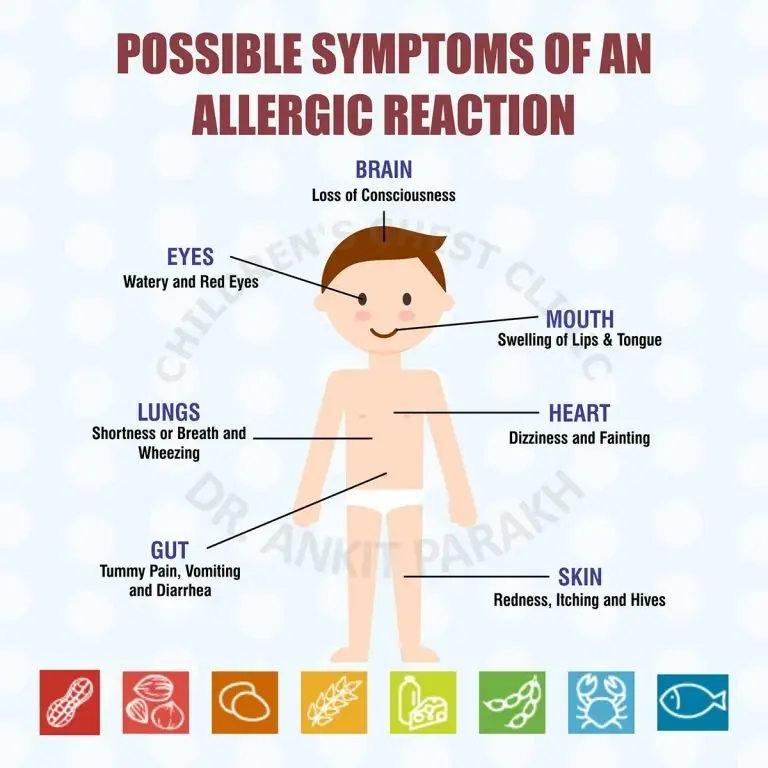What are the signs and symptoms of common allergies in children?


Allergies in children are a common occurrence, with millions of kids experiencing symptoms each year. It is important for parents and caregivers to be aware of the signs and symptoms of common allergies in children, as early detection and treatment can greatly improve a child’s quality of life. In this article, we will explore the various signs and symptoms of allergies in children, discuss the process of allergy diagnosis, and provide tips for allergy treatment, relief, and prevention in children.
Signs and Symptoms of Allergies in Children
Allergies can manifest in a variety of ways in children. Some common signs and symptoms of allergies in children include:
1. Nasal symptoms: Children with allergies may experience a runny or stuffy nose, sneezing, and itching in the nose.
2. Eye symptoms: Allergies can cause red, itchy, and watery eyes in children.
3. Skin symptoms: Children with allergies may develop rashes, hives, or eczema. These skin symptoms are often itchy and can be accompanied by redness and swelling.
4. Gastrointestinal symptoms: Some children may experience gastrointestinal symptoms such as stomach pain, nausea, vomiting, or diarrhea as a result of allergies.
5. Respiratory symptoms: Allergies can also affect the respiratory system, leading to coughing, wheezing, shortness of breath, or chest tightness in children.
6. Behavioral symptoms: In some cases, allergies can cause irritability, restlessness, or difficulty sleeping in children.
Allergy Diagnosis
If you suspect that your child may have allergies, it is important to consult a healthcare professional for a proper diagnosis. The healthcare provider will typically start by taking a detailed medical history and conducting a physical examination. They may also recommend allergy testing to identify the specific allergens causing your child’s symptoms.
There are two main types of allergy tests commonly used in children:
1. Skin prick test: This test involves placing a small amount of allergen extracts on the skin and then pricking or scratching the skin to allow the allergens to enter. If your child is allergic to a particular substance, a small raised bump or redness will appear at the test site.
2. Blood test: A blood test, such as the specific IgE blood test, measures the levels of specific antibodies (IgE) in the blood. Elevated levels of IgE antibodies to certain allergens can indicate an allergy.
Allergy Treatment and Relief for Kids
Once your child has been diagnosed with allergies, there are several treatment options available to provide relief from their symptoms. These may include:
1. Medications: Antihistamines are commonly used to relieve allergy symptoms in children. They work by blocking the effects of histamine, a chemical released during an allergic reaction. Nasal sprays and eye drops may also be prescribed to alleviate specific symptoms.
2. Allergy shots: Allergy shots, also known as immunotherapy, can be an effective long-term treatment for children with allergies. These shots contain small amounts of the allergen and are administered over a period of time to help the child’s immune system build tolerance.
3. Environmental control: Making changes to your child’s environment can help reduce exposure to allergens. This may include using allergen-proof bedding, keeping windows closed during high pollen seasons, and regularly cleaning and vacuuming the house to remove dust mites and pet dander.
Allergy Prevention in Children
Preventing allergies in children can be challenging, but there are steps you can take to reduce the risk. Here are some tips for allergy prevention in children:
1. Breastfeeding: Breastfeeding your baby for at least six months can help reduce the risk of allergies.
2. Introduce solid foods gradually: When introducing solid foods to your child, do it gradually and one at a time. This can help identify any potential food allergies.
3. Keep pets out of the bedroom: If your child is allergic to pet dander, it is best to keep pets out of their bedroom and limit their exposure to allergens.
4. Monitor pollen levels: Keep an eye on pollen forecasts and try to limit outdoor activities when pollen counts are high.
5. Keep the house clean: Regularly clean and vacuum your home to remove allergens such as dust mites and pet dander.
In conclusion, allergies in children can present with a variety of signs and symptoms, ranging from nasal and eye symptoms to skin and gastrointestinal symptoms. If you suspect your child has allergies, it is important to consult a healthcare professional for a proper diagnosis. Treatment options include medications, allergy shots, and environmental control measures. By taking steps to prevent allergies in children, such as breastfeeding, introducing solid foods gradually, and keeping the house clean, you can help reduce the risk of allergies and improve your child’s overall well-being.
Recent Posts
How do I create an engaging and informative online quiz or assessment?
Creating an engaging and informative online quiz or assessment can be a powerful tool for… Read More
What are the most effective methods for managing and reducing work-related stress in the hospitality industry?
Work-related stress is a common issue in the hospitality industry, where employees often face long… Read More
How can I improve my assertiveness and communication skills in a leadership position?
In a leadership position, assertiveness and effective communication skills are crucial for success. Being able… Read More
What are the key elements of a successful employee recognition and rewards program?
Employee recognition and rewards programs play a crucial role in motivating and engaging employees, as… Read More
How do I effectively manage and respond to customer feedback and reviews?
Customer feedback and online reviews play a crucial role in shaping a company's reputation and… Read More
What are the best strategies for effective time management as a stay-at-home parent?
Effective time management is crucial for stay-at-home parents who juggle multiple responsibilities on a daily… Read More